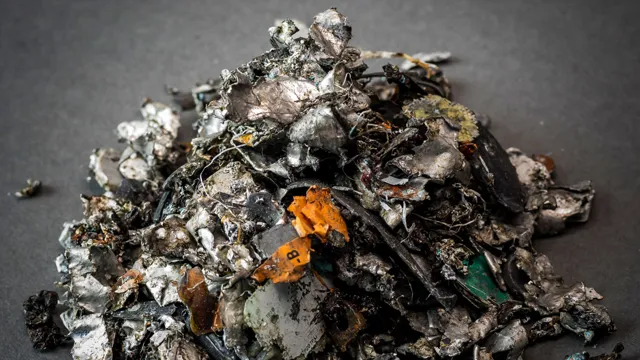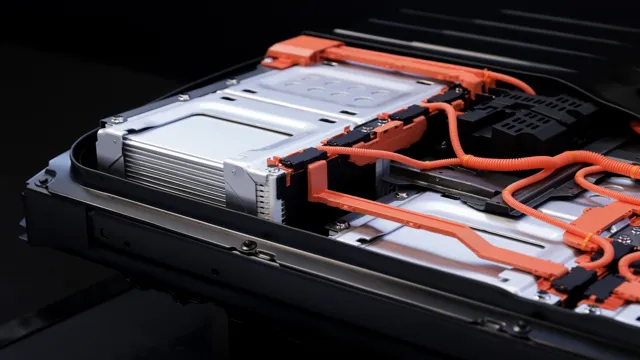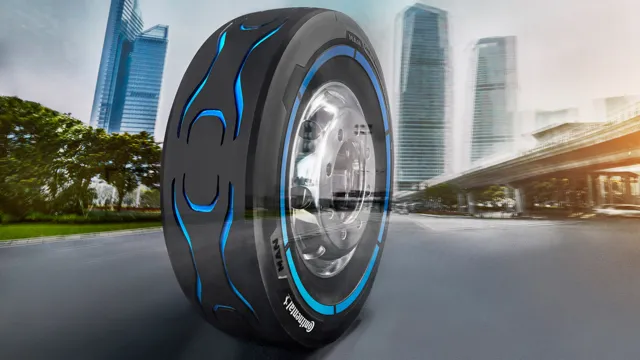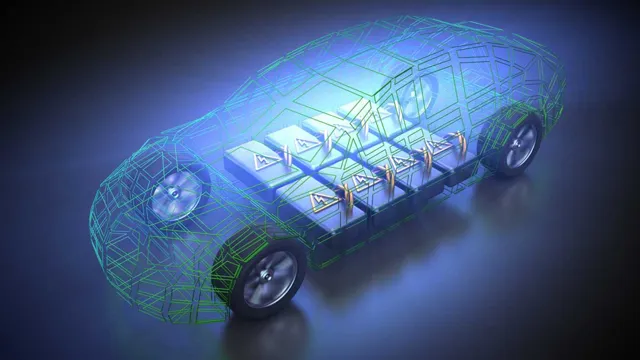Unwrapping the Eco-Friendly Options for Electric Car Battery Disposal: A Guide to Sustaining the Environment
Are electric cars truly eco-friendly? Despite the reduced emissions and gas consumption, there is an often-overlooked dark side to electric vehicles: their batteries. These lithium-ion batteries, while designed to last for years, will eventually wear out and require replacement. And when that happens, the important question arises: what happens to these discarded batteries? The reality is that these batteries pose a serious environmental risk.
The majority of lithium-ion batteries end up in landfills, where they can leak toxic chemicals and heavy metals into the soil and groundwater. These chemicals can cause harmful effects on the environment and human health, including cancer, birth defects, and developmental delays. The overuse and careless disposal of these batteries can also lead to pollution of the air, water, and land, slowly damaging the ecosystem and the world we live in.
The problem will only grow as more and more electric vehicles hit the road, and more batteries need to be disposed of. So what can be done to mitigate this environmental threat? One solution could be a more efficient process for recycling these batteries to reclaim their valuable resources. However, this requires significant investment and infrastructure, and until such a system is in place, we need to be mindful of the impact of discarding electric car batteries.
In conclusion, while electric vehicles do offer many benefits, the environmental impact of the batteries powering them cannot be ignored. It is our responsibility to prioritize proper disposal and recycling of these batteries to ensure that we are using sustainable and safe practices to protect our planet for generations to come.
The Rise of Electric Cars
The rise of electric cars has brought about many benefits such as reducing the reliance on fossil fuels, but it also presents an environmentally hazardous problem: the disposal of electric car batteries. Car batteries contain toxic chemicals such as lead, lithium, and sulfuric acid, which can leak into the environment if not properly disposed of. The process of extracting these materials from batteries is complex and costly, making battery recycling a challenging task.
Additionally, as the number of electric vehicles on the road grows, the issue of battery disposal becomes magnified. To address this problem, companies are incorporating sustainable practices for battery disposal, including refurbishing used batteries and implementing recycling programs. While electric cars have the potential to make a positive impact on our planet, it is imperative that steps are taken to ensure the safe and responsible disposal of their batteries.
Stats on Electric Car Usage
Electric cars have been rising in popularity over the past few years, with more and more drivers choosing to go electric. In fact, the number of electric vehicles on the roads worldwide surpassed 5 million in 2018, a testament to their growing popularity. One of the biggest reasons for this rise in popularity is the increasing awareness of climate change and the need to reduce greenhouse gas emissions.
Electric cars produce little to no emissions, making them a great alternative to traditional gasoline-powered vehicles. Additionally, the cost of batteries used in electric cars has been decreasing, making them more affordable for the average consumer. With the continued developments and advancements in electric car technology, it’s safe to say that electric cars are here to stay and will only continue to rise in popularity in the coming years.

Advantages and Disadvantages of Electric Cars
Electric cars have been on the rise in recent years, with more and more consumers opting for this environmentally-friendly mode of transportation. One of the main advantages of electric cars is their ability to reduce carbon emissions. Unlike traditional gasoline-powered cars, electric vehicles produce zero tailpipe emissions, making them a cleaner option for the planet.
Additionally, electric cars can save drivers money in the long run as they require less maintenance and have lower fuel costs. However, there are also some disadvantages to consider, such as the limited driving range of many electric cars and the cost of purchasing a new one. Despite these drawbacks, it is clear that electric cars are becoming more popular and are a step towards a greener future.
Electric Car Batteries: A Recycling Challenge
Electric car batteries have been hailed as an important step towards reducing our reliance on fossil fuels. However, as with any new technology, electric car battery disposal and recycling present new challenges for the environment. While electric car batteries are designed to last for years, they eventually wear out and need to be replaced.
When this happens, it’s vital that they’re disposed of responsibly. Electric car batteries contain a range of materials, including lithium, cobalt, nickel, and aluminum, which can all be recycled. Unfortunately, not all of these materials are easy to recycle, and some can be harmful to the environment if they’re disposed of improperly.
As electric car usage continues to grow, it’s essential that we develop more efficient and environmentally friendly ways to recycle these batteries. Only by doing so can we ensure that electric vehicles truly live up to their promise as an eco-friendly alternative to traditional petrol and diesel-powered cars.
The Composition of Electric Car Batteries
Electric car batteries are becoming the talk of the town with the increasing awareness of sustainable energy and the need to preserve the environment. However, the composition of these batteries poses a significant recycling challenge. Electrical car batteries are made up of several components, including lithium, cobalt, nickel, graphite, and manganese.
While these elements serve as an efficient source of energy for electric vehicles, they also make it challenging to recycle the battery. The lithium-ion battery packs make up 40 to 70% of the electric vehicle’s total cost, and its recycling value is only at 10 to 20%. As a result, recycling electric car batteries requires advanced technologies capable of extracting and separating these elements for reuse.
This process is still in its early stages, with only a few firms in the world adequately equipped to recycle electric vehicles’ batteries. Therefore, it’s crucial to find sustainable methods for recycling electric cars’ batteries to reduce waste and preserve our environment’s health.
The Risks of Improper Battery Disposal
Electric car batteries pose a unique recycling challenge due to their size and composition. Most electric car batteries are made up of lithium-ion cells, which contain valuable materials that should be recycled rather than disposed of improperly. When electric car batteries are not recycled, they pose environmental and safety risks as they can release harmful chemicals and heavy metals into the ground and water if not handled correctly.
Additionally, electric car batteries that are not recycled contribute to the growing problem of electronic waste, which is already a significant concern. That’s why proper battery disposal is critical in ensuring the safety of our environment and communities.
Efforts in Battery Recycling and Reuse
As we move towards a greener future, electric cars have become a popular choice for many. However, as the use of electric car batteries increases, so does concern over their disposal and recycling. While these batteries can last for a long time, eventually they do need replacing.
And simply disposing of them can cause harm to the environment. The good news is that efforts are being made to recycle and reuse electric car batteries. Recycling not only helps reduce waste but can also help drive down the cost of producing new batteries.
Several companies are working on ways to extract materials from used batteries and use them in the production of new ones. Moreover, there is also potential for second-life applications, where used batteries can be repurposed for other uses like energy storage. The challenge lies in finding ways to recycle these batteries in a cost-effective way while ensuring minimal environmental impact.
It is crucial that we continue to invest in finding innovative solutions for these challenges to make electric cars a truly sustainable and eco-friendly option.
Tips for Responsible Electric Car Battery Disposal
When it comes to electric car battery disposal, it’s important to take responsible measures to protect the environment. Contrary to popular belief, these batteries are not fully recyclable due to their complex chemical composition. However, there are still ways to ensure their proper disposal.
One option is to contact the car manufacturer or a professional battery recycling company to handle the disposal on your behalf. It’s also important to never dispose of the battery in a landfill or incinerator, as this can lead to harmful chemicals seeping into the soil and air. Instead, look for designated battery drop-off locations or recycling centers in your area.
By taking these steps, you can ensure that your electric car battery is disposed of responsibly and minimize its impact on the environment.
Battery Disposal Regulations
Electric Car Battery Disposal Regulations When it comes to electric car battery disposal, it is essential to follow the necessary regulations to protect the environment and avoid any hazardous risks. One tip for responsible disposal is to research your local government’s guidelines on how to properly dispose of the electric car battery. Many local governments have designated battery recycling facilities or programs to safely dispose of electric car batteries.
Another tip is to consult with your car manufacturer or dealer for any options they may offer for battery disposal or recycling. It is also important to avoid disposing of electric car batteries in regular household waste, as it can be harmful to both the environment and waste management workers. By being responsible with the disposal of electric car batteries, we can reduce our impact on the environment and ensure a cleaner future for generations to come.
Options for Battery Recycling and Reuse
When it comes to electric car battery disposal, responsible recycling and reuse options are available for consumers. Rather than simply throwing away used batteries, it’s important to properly dispose of them to prevent environmental damage. One option is to recycle the battery materials.
This involves breaking down the battery into its component parts, such as metals, plastics, and chemicals, which can then be used in the production of new batteries or other products. Another option is to repurpose the battery for other uses. For example, used electric car batteries can be used for energy storage in homes or businesses.
By repurposing or recycling used batteries, we can help reduce waste and create a more sustainable future.
The Future of Electric Car Batteries and the Environment
As the popularity of electric cars continues to grow, there is an urgent need to develop sustainable and environmentally friendly ways to dispose of their batteries. The good news is that several companies and researchers are working towards creating electric car batteries that can be recycled. These batteries use materials that can be recovered and used to create new batteries, reducing the amount of waste that ends up in landfills.
In addition to battery recycling, some researchers are also exploring using the batteries as a source of backup energy for homes and businesses, thereby extending their lifespan and reducing environmental impact. While there is still much work to be done, it is encouraging to see that the future of electric car batteries is moving towards a more sustainable and environmentally conscious direction.
Conclusion
In conclusion, the future is bright for electric cars, but we must be mindful of their battery disposal. Let’s not shock the environment with careless waste and instead, recharge our commitment to sustainability. Remember, if we don’t energize change now, we’ll be left in the dark.
“
FAQs
Why is it important to properly dispose of electric car batteries?
Electric car batteries contain harmful chemicals and heavy metals that can harm the environment and human health if not disposed of properly.
How can I dispose of my electric car battery?
Electric car batteries should be returned to the manufacturer or a certified recycling facility for proper disposal. Contact your electric car manufacturer or local recycling center for information on how to properly dispose of your battery.
Can electric car batteries be recycled?
Yes, electric car batteries can be recycled. The lithium-ion batteries used in electric cars contain valuable metals that can be reused. Recycling the batteries reduces the need for mining new materials and helps reduce the environmental impact of electric car production.
What are the environmental benefits of using electric cars?
Electric cars produce fewer emissions than gasoline-powered cars, leading to cleaner air and reduced greenhouse gas emissions. Additionally, the use of renewable energy sources such as solar or wind power to charge electric cars can further reduce environmental impact.




